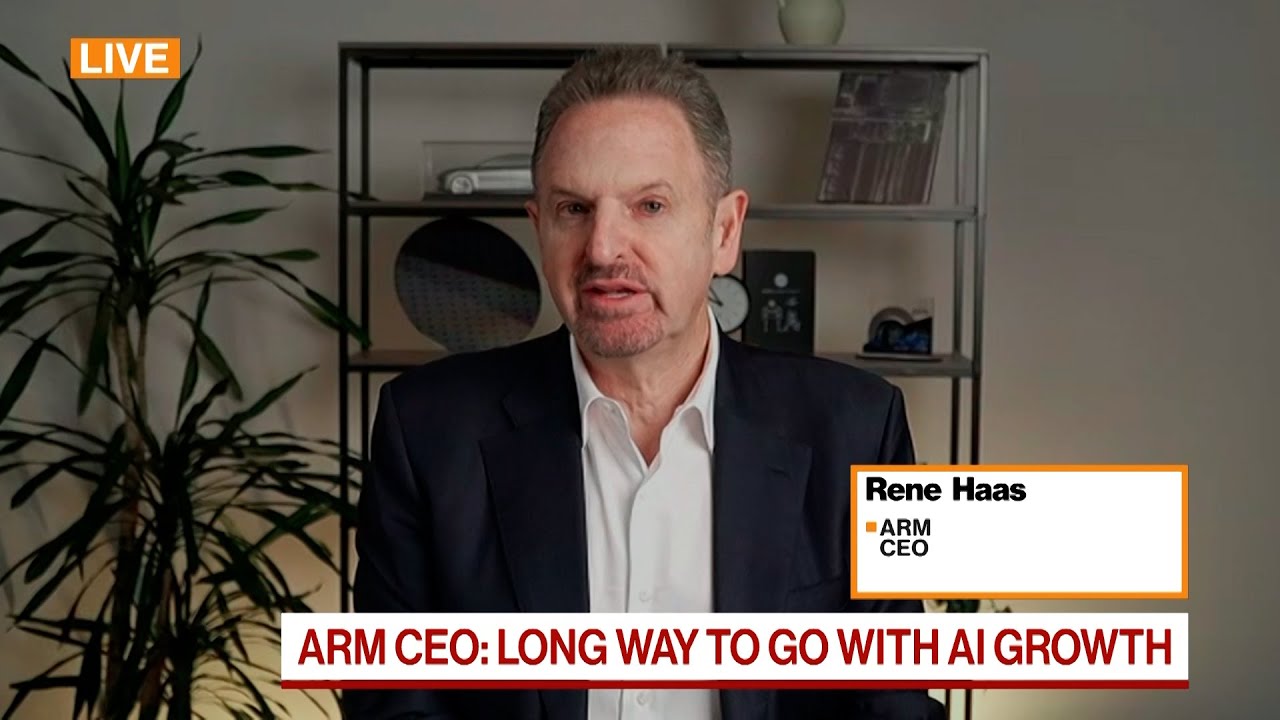Arm’s CEO highlights the company’s strong financial performance and optimistic outlook for growth in AI and data infrastructure, emphasizing that AI demand is not a bubble but a significant long-term opportunity. Despite geopolitical and trade uncertainties, the company remains confident in the expanding need for compute power driven by AI workloads and industry consolidation.
In the interview, Arm CEO discusses the company’s strong financial performance, highlighting a record-breaking quarter with over $1 billion in revenue and significant royalty and licensing growth. The company finished its fiscal year with a total of $4 billion in revenue, driven by a projected 25-30% growth in licensing royalties. Despite this positive outlook, Arm remains cautious about future demand due to the lumpiness of licensing deals and uncertain visibility from partners, leading them to refrain from providing detailed guidance beyond the current quarter.
The CEO explains Arm’s business model, emphasizing that it primarily licenses designs for chips used in various end products like smartphones, vehicles, and data centers. Because of this, Arm is not directly impacted by tariffs, but indirect effects on royalties are possible if end-product manufacturers face demand fluctuations. Currently, Arm perceives a lack of clarity around tariffs and trade policies, which creates uncertainty for its partners. The company is adapting its royalty structure by shifting toward comprehensive compute subsystems, which command higher royalties and help accelerate chip development for customers.
Regarding growth areas, the CEO highlights the resilience of the data center and AI infrastructure markets. Large-scale investments by hyperscalers and ongoing advancements in AI models, such as ChatGPT, indicate strong demand for data processing capabilities. While enterprise adoption of AI remains modest, the vast amounts of data stored by organizations like J.P. Morgan suggest significant white space for growth. The CEO notes that despite some regulatory uncertainties, such as the US-China chip export restrictions, the fundamental demand for AI and compute infrastructure remains robust and far from reaching its full potential.
The CEO also addresses concerns about the impact of geopolitical issues and export controls, stating that it’s difficult to predict their effects precisely. However, he emphasizes that AI demand is not a bubble and believes the technology’s potential is still largely untapped. AI models are becoming increasingly capable, and their integration into various devices—from earbuds to autonomous vehicles—is expected to grow. The company sees a long-term opportunity in enabling AI across multiple platforms, with the understanding that AI compute will complement traditional computing rather than replace it.
Finally, Arm discusses its customer base, which is highly concentrated, with 60% of revenue coming from five top clients, including significant exposure to China. The CEO explains that industry consolidation and the increasing demand for compute power driven by AI have maintained strong chip demand despite the concentration. He reassures that the overall demand for chips remains high, fueled by AI workloads that require substantial computing resources. Arm continues to focus on diversifying its customer base and adapting to industry shifts, confident that the long-term growth in AI and data infrastructure will sustain its business.
